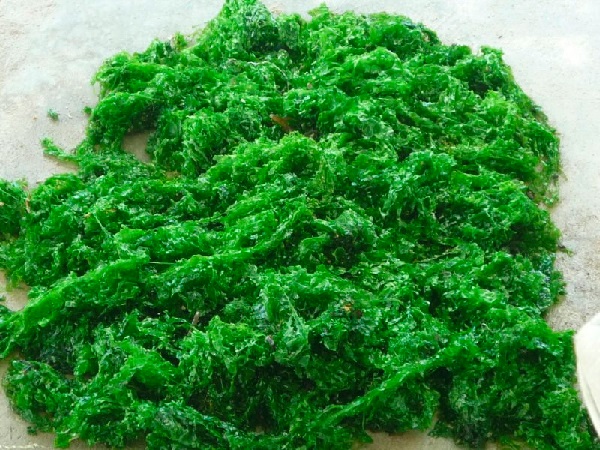
Commercial seaweed cultivation begins - About 500,000 coastal dwellers to benefit
The Water Research Institute (WRI) of the Council for Scientific and Industrial Research (CSIR) is engaging people in coastal communities to make seaweed cultivation an economic venture.
Advertisement
Under a five-year project dubbed the ‘SeaBioGha’, the initiative focuses on establishing relevant technology for seaweed processing and developing local know-how for its farming.
According to the WRI, about 500,000 coastal dwellers would be impacted along the project value chain, from cultivation, processing and marketing.
The project is being sponsored by the Danish government, in partnership with the Technical University of Denmark and the Chemical Engineering Department of the Kwame Nkrumah University of Science and Technology (KNUST).
Workshop
At a workshop in Accra yesterday, the Director of the CSIR, Professor Osmund Duodu Ansah-Asare, said the project was also aimed at advancing the processing of seaweed for the production of biofuels.
“The project aims at developing local techniques for the cultivation of seaweed in Ghana. It also aims at establishing technology for seaweed processing and developing enzymatic technologies to extract valuable hydrocolloids such as algimate, carrageenan and fucoidan from the seaweed,” he said.
The ultimate goal of the project, Prof. Ansah-Asare said, was to curtail the pressure on fishery resources as a result of overfishing/illegal fishing practices, as the coastal dwellers could get other sources of income and not depend solely on fishing.
Why the project?
Explaining the rationale behind the project, Prof.Ansah-Asare said there had been concerns regarding the depletion of fish stocks in the sea.
Over the past few decades, the dwindling fortunes of the fisherfolk and their families as a result of the numerous problems confronting the fishing industry have reached alarming proportions, which call for concerted effort and strategy to explore viable alternatives.
“When one economic activity is on the decline, there is always the natural urge to look for alternatives. That is the situation confronting the coastal communities in the country where fishing and its ancillary activities have been their mainstay,” Prof. Ansah-Asare said.
Govt interventions
In a speech read on his behalf, the Minister of Environment, Science, Technology and Innovation (MESTI), Prof. Kwabena Frimpong Boateng, said the government was determined to look for more ways of improving the livelihood of the coastal people.
Concerning seaweeds, he said Asian countries such as China, Japan and the Republic of Korea had used seaweeds as food sources for many decades and that had spread to Europe, as well as North and South America.
Seaweed offers health benefits due to its vitamin K, iron and calcium content. It is mostly used as vegetables, but has also been processed into food supplements.
He said Ghana had the highest seaweed diversity in West Africa, which implied that there was a lot of seaweed cultivation potential in the country.
“Ghana as a country stands a chance of improving the livelihood of coastal community dwellers if she starts to adopt seaweed cultivation along its shores,” Prof. Frimpong Boateng added.



